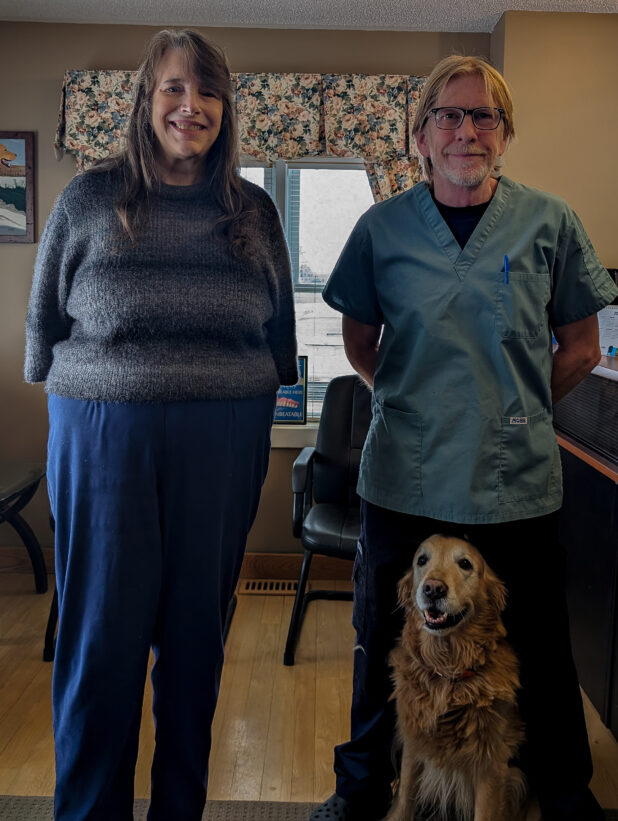Headline News
Navigating the Canadian Dental Care Plan
February 14, 2024

By Kaitlin Sylvester
Area seniors have been receiving notices of their eligibility for the Liberal Governments Canadian Dental Care Plan. The federal program aims to alleviate financial barriers to oral health care for eligible Canadians, essentially a $13-billion insurance program that will cover most basic dentistry, but the ambiguity has left many residents with questions.
A notable aspect of the CDCP is its proposed coverage for preventive, diagnostic, restorative, endodontic, prosthodontic, periodontal, and oral surgery services. While some cosmetic services, such as teeth whitening, implants, and mouth guards, will not be covered under the plan. The CDCP is not intended to replace existing workplace or private dental benefits, nor can it be considered “free dental care” The CDCP is a government dental benefit, meaning that individual dental clinics can opt in or out of participating.
The CDCP’s coverage is income-dependent, with a sliding scale of co-payments based on the annual family net income. The eligibility process is unfolding in phases, beginning with seniors aged 87 and above at the end of 2023. Subsequent phases will gradually open May through the end of 2024. 9 million potential Canadians will be impacted by the new service and staff at the Bancroft Denture Clinic said they have already been fielding questions about the rollout.
Applications open:
Seniors aged 77 and up should already have received a letter
Seniors aged 70 to 76 February/March 2024
Seniors aged 65 to 69 May 2024
Children under the age of 18 June 2024
Adults with a valid Disability Tax Credit certificate June 2024
All remaining eligible Canadian residents by 2025
Eligible families:
Annual family net income under $70,000 – No co-payment of the CDCP benefit
Annual family net income between $70,000 and $79,999 – A 40 per cent co-payment of the CDCP benefit
Annual family net income between $80,000 and $89,999 – A 60 per cent co-payment of the CDCP benefit
Gavin Butler, denturist and Linda Snider, office manager stressed the need for residents to understand the rollout timeline and eligibility criteria to ensure a smooth application process. “First, residents will receive a notice telling them that they are eligible, the letter includes a code that allows them to apply by phone. Then, if they qualify, a second mailing contains their welcome kit with their start date and membership card.” Snider said. She also said residents with their cards can call now to get booked in for the program start in May.
The team at Bancroft Denture Clinic said they have been helping local seniors to navigate the onboarding process. “We’ve attended some information sessions with the government and we thought, okay we can share this information.” said Butler. “We can’t really provide guidance for everybody, but we can give them an idea of where to start and help direct them.”
Despite the challenges in information sharing, Butler emphasizes his commitment to helping the community navigate the CDCP. The Bancroft Dental Clinic encouraged residents to reach out with questions and concerns, “we hope to make it easy for people. We can guide them to one of the local dentists, and put them on the path to where they need to be.” Snider added that residents on the Ontario Seniors Dental Care Program seem to be eligible for the federal program, saying “we suggest people call, because if they are eligible, it would be a shame for them to miss out on the opportunity.”
As the CDCP unfolds, it is important for residents to stay informed, adhere to the application timeline, and seek guidance from local experts like Snider and Butler. The program holds the promise of improving access to oral health care for millions of Canadians, but understanding the details is crucial for a successful local rollout.
Service Canada is aware of scams targeting Canadians related to the Canadian Dental Care Plan (CDCP). If you are concerned about the legitimacy of a letter you received regarding CDCP, you can contact 1-833-537-4342 (TTY: 1-833-677-6262).


















